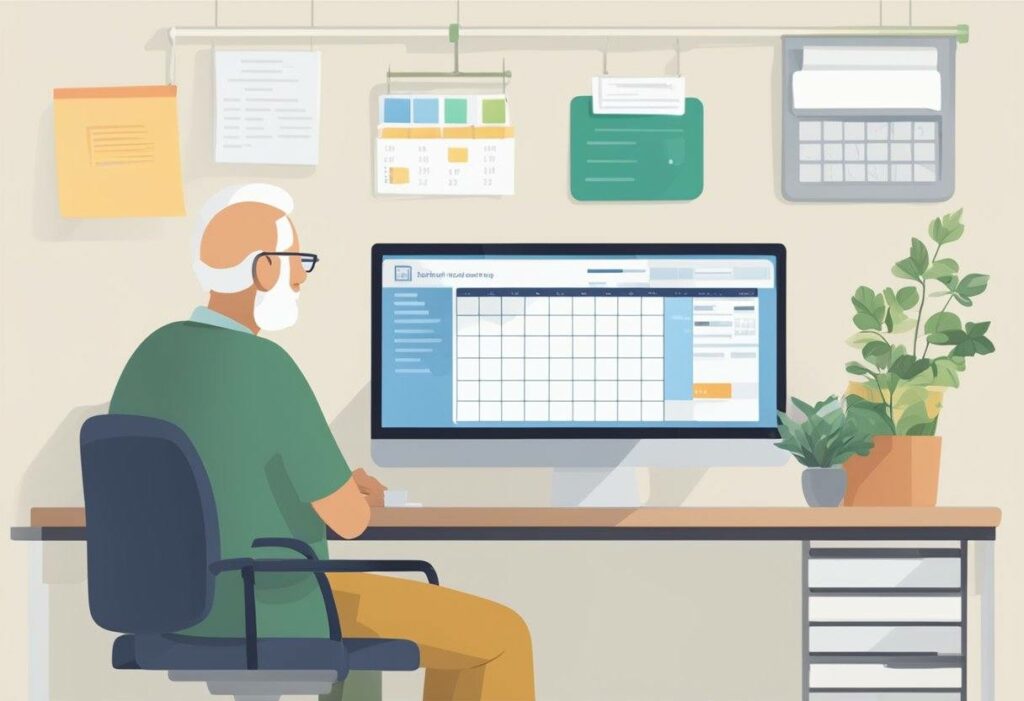I still remember the mix of excitement and nervousness I felt, sitting among classmates half my age, as I embarked on my college journey as a senior.
It was a decision fueled by a long-cherished dream to return to school and reshape my future.
From navigating the maze of applications to selecting the right program, it was a journey of self-discovery and determination.
In this article, we’ll explore the top 5 Free College After 50 programs and how to get them.
- What is the Free College After 50 Program?
- Top 5 Free College After 50 Programs
- How to Apply for Free College After 50
- Eligibility Criteria
- Documents Required
- Benefits of Free College After 50
- Frequently Asked Questions on Free College After 50
- Which states offer tuition waivers for senior citizens pursuing higher education?
- Are there specific colleges that provide free tuition for individuals over the age of 50?
- How can senior citizens find colleges offering free courses near their residences?
- What are the available options for seniors seeking to attend college for free in California?
- What educational programs are best suited for older adults seeking a degree?
- How does the process work for seniors returning to college, and what financial aid opportunities exist?
- Conclusion
What is the Free College After 50 Program?
Free College After 50 program is a program that caters to senior citizens interested in pursuing higher education and lifelong learning opportunities without the financial burden that often accompanies college courses.
Check out my post on Free living Expenses while in College, if you need help with your accommodation while you study.
Top 5 Free College After 50 Programs
These are the Top 5 Free College After 50 Programs:

1. The Senior Citizen Audit Program at Rutgers University
If you’re over 62 and a state resident, you can audit classes for free on a space-available basis at Rutgers University campuses, including New Brunswick, Camden, and Newark. While tuition is waived, you are responsible for the cost of textbooks.
2. Ivy Tech Community College and Vincennes University
In Indiana, retirees aged 60 and over benefit from at least a 50% discount on in-state tuition fees for up to nine credit hours per semester. Some institutions, such as Ivy Tech Community College and Vincennes University, offer even more, waiving 100% of the tuition for a credit course.
3. University of Minnesota
Minnesota’s seniors aged 62 and older have tuition waived, although fees may vary. At the University of Minnesota, a nominal fee of $10 per credit is charged, but auditing is available without charge.
4. State Universities and Colleges in Various States
Several state universities and colleges across the U.S. offer tuition waivers for local residents aged 60 or older. These waivers allow you to take for-credit courses without tuition costs, subject to meeting certain prerequisites and availability.
5. Specific Programs at Mississippi State University
Although Mississippi doesn’t have a statewide program, Mississippi State University provides waivers for residents aged 60 or above. These tuition waivers can vary, so you must check for specific offerings at the institution you are interested in.
As we explore the empowering journey of education beyond 50, why not check out how to get College Grants for Single Moms.
How to Apply for Free College After 50

Follow these steps to apply for Free College After 50:
- Research Institutions: Start by identifying colleges that offer free or low-cost programs for older adults. Websites like Consumer Reports provide lists of such programs.
- Understand the Options: Determine if you’re looking to audit classes or enroll in for-credit courses. Auditing allows you to learn without earning credit, while for-credit might count towards a degree program.
- Meet Eligibility Criteria: Carefully review eligibility requirements. Some programs might have residency or income stipulations for participation.
- Prepare Documentation: Gather necessary documents, typically including proof of age, income, and residency. Colleges may require additional paperwork, so check with the admissions office.
- Choose Courses: Select the college courses you are interested in. If pursuing a degree program, ensure the courses align with the required curriculum.
- Complete Application: Fill out the application form required by the college. This may include an application for admission if you’re a new student.
- Enrollment and Registration: Once accepted, enroll in your chosen classes. If the course is for credit, make sure to understand the commitments involved.
As you embrace the possibilities of free college, consider further enriching your academic journey. Our guide to the College Career Advancement Grant is the perfect companion for those looking to elevate their career with newfound knowledge.
Eligibility Criteria
These are the eligibility criteria to get Free College After 50:
- You must be 50 or older, with some programs specifically catering to those 60 or older.
- You must be a resident of the state where the university is located. Each state has its own residency requirements, such as California, Colorado, and New York.
Documents Required

These are the documents required to get Free College After 50:
- Proof of Age: Government-issued ID such as a driver’s license or a passport.
- Proof of Residency: Utility bills, lease agreements, or property tax receipts.
- Educational Records: Transcripts or diplomas to demonstrate prior educational experience.
- Retirement Status: Documents such as a letter from previous employers or Social Security retirement benefit statements.
If you are a US veteran, refer to my Veteran College Grants guide.
Benefits of Free College After 50
These are the benefits of getting Free College After 50:
- Lifelong Learning: You can keep your mind active and information fresh. Engaging in academic activities contributes to cognitive health and personal growth.
- Professional Development: Free college courses offer a chance to update or gain new skills. Whether you’re looking to change careers or grow in your current field, further education can provide you with tools for success.
- Networking Opportunities: Classrooms are great for meeting people with similar interests and goals. These connections can lead to professional opportunities and enrich your personal life.
- Pursuit of Passions: You can study areas you’ve always been passionate about, from literature to science, without the pressure of earning a degree for career purposes.
- Educational Credentials: If you decide to pursue a degree or certificate, doing so can help cement your expertise and potentially lead to new career paths.
Frequently Asked Questions on Free College After 50
These are the frequently Asked Questions on Free College After 50:
Which states offer tuition waivers for senior citizens pursuing higher education?
States like California, New York, Florida, and Texas offer tuition waivers for senior citizens at public colleges and universities.
Are there specific colleges that provide free tuition for individuals over the age of 50?
Yes, colleges like the University of Minnesota offer free tuition to individuals over 50.
How can senior citizens find colleges offering free courses near their residences?
To find colleges offering free courses, start by checking the websites of community colleges and public universities in your state.
What are the available options for seniors seeking to attend college for free in California?
In California, senior citizens have options such as the California State University system, which offers reduced-fee enrollment for older adults, as well as community colleges that may waive tuition for state residents aged 60 and above.
What educational programs are best suited for older adults seeking a degree?
Educational programs in areas such as the arts, humanities, business, and social sciences often cater to a broader demographic and may be more suited for older adults.
How does the process work for seniors returning to college, and what financial aid opportunities exist?
The process for returning to college starts with choosing a program and applying for admissions, just like any other student. Investigate financial aid opportunities specifically for seniors, which can include scholarships, grants, and tuition waivers designed to make education more affordable.
Conclusion
Embracing the classroom at this stage in life is like adding a vibrant splash of color to an already rich tapestry.
I’ve seen firsthand that it’s never too late to learn, grow, and even reinvent yourself.
So, dust off those dreams, pick up that pen, tablet, or tool, and step confidently into a world of Free College at 50.


